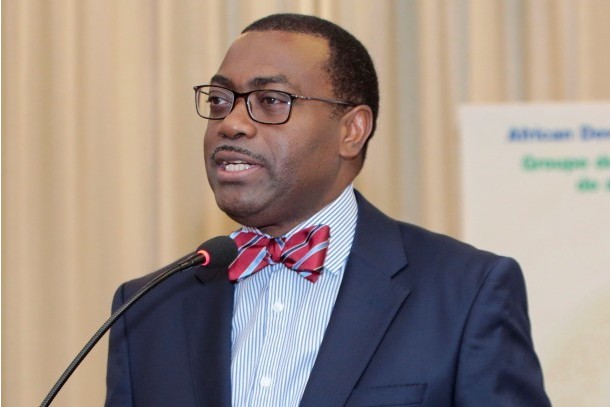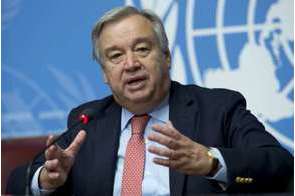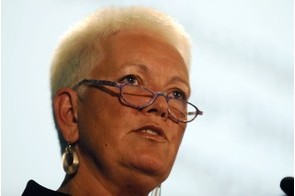AfDB recommends targeted fiscal, monetary policies to fight Covid-19

Summary
In the worse-case scenario, Nigeria's GDP is forecast to contract by 7.2 per cent in 2020 and grow by 0.1 per cent in 2021.
The African Development Bank (AfDB) has released a comprehensive socio-economic assessment of the effects of the Covid-19 pandemic. The assessment, which is contained in a supplement to the bank’s African Economic Outlook (AEO) 2020 that was released in January, shows that for the first time in the last half-century, Africa would be facing an economic recession as a fallout of the pandemic.
The AEO 2020 Supplement also cautions that the growth outlook for 2021 and beyond would depend largely on African governments’ effectiveness in flattening the curve of the outbreak as well as policies to reopen economies and accelerate recovery. In a statement released on Wednesday following the release of the report yesterday, the AfDB said Africa’s GDP growth was now projected to rebound to 3 per cent in 2021 from –3.4 per cent in the worst-case scenario for 2020. Earlier in January, the bank predicted Africa’s growth at 3.9 per cent in 2020 and 4.1 per cent next year.
In the worse-case scenario, Nigeria – the largest economy on the continent – is forecast to record a GDP contraction of 7.2 per cent this year and growth of 0.1 per cent in 2021. The worst-case scenario considers a virulent impact of the virus where the pandemic continues beyond the first half of 2020. In the baseline scenario, which assumes a substantial impact of the virus but over a short duration, the African economy will contract by 1.7 per cent and Nigeria will report a contraction of 4.4 per cent in 2020.
As of today, COVID-19 infections in Africa have surpassed 500,000, and a growing number of countries are experiencing a sharp rise in cases, according to the World Health Organisation (WHO). In less than five months, the virus has claimed over 12,000 lives, overtaking the 11,308 lives lost in the world's worst Ebola outbreak in West Africa between 2014 and 2016. AfDB said the spread of the virus on the continent depends largely on the preparedness of countries to isolate and treat infected patients, noting that only 21 out of 54 African countries are clinically prepared to deal with epidemics.
The AEO 2020 Supplement recommends a multi-pronged policy approach that is coordinated, targeted, and rapid in addressing the pandemic and spurring 3 per cent growth in 2021. The polices include 1) a public health response to contain the spread of the virus and minimize fatalities; 2) a monetary policy response to ease liquidity constraints and solvency risks; 3) a fiscal response to cushion the impacts on livelihoods and to assist businesses; 4) a labour-market response to protect workers and their jobs; and 5) structural policies to enable African economies to rebuild and enhance their resilience to future shocks.
In terms of health policy response, the AEO supplement prescribes an elevation of the health system among development priorities. It calls on governments to make investments to upgrade, update, and extend existing health infrastructure. Proposed monetary policy response by the AfDB include cutting interest rates, providing targeted interventions for affected firms and sectors, and using macroprudential and unconventional monetary policy to support the economy.
The report says fiscal response should include support for households through well-functioning social protection programmes. It also recommends support for businesses most affected to stay afloat. Such support may include targeted temporary tax relief, cash transfers, and hardship allowances. The updated AEO says between 28.2 and 49.2 million more Africans could be pushed into extreme poverty in 2020, while overall poverty could reach 425.2 million this year.
According to the report, the impact of Covid–19 on Africa’s labour markets will disproportionately affect vulnerable groups, notably the youth and women. Hence, labour market policies should seek to protect workers and their jobs. AfDB also said governments should protect workers by encouraging flexible working arrangements such as tele-working and by providing employment retention guarantees.
"The ongoing COVID-19 pandemic is certainly not the last major shock the continent will face," said Charles Lufumpa, AfDB’s Acting Chief Economist and Vice President for Economic Governance and Knowledge Management. "In the AEO Supplement, we emphasized the need to accelerate structural reforms to help African countries build more resilient economies and become better prepared to face future shocks."
To build economies that are more resilient against future shocks, the AEO supplement emphasizes the need to invest in human capital to build a workforce with the right skills for high-productivity sectors and bridging the infrastructure deficit to advance Africa’s industrial development.
“Other challenges that will need to be addressed in order to achieve faster-growing and more resilient African economies include: formalizing the informal sector; ensuring political stability, good governance and transparency, and stronger protections for property rights,” Lufumpa said.
Related
-
UN, AU sign framework on peace and security in Africa
The joint UN-AU framework is expected to boost cooperation between the two organizations.
-
U.S think tank advocates less taxes, fossil fuel and property rights for Africa to develop
Competitive Enterprise Institute proposes policies that promote economic freedom, limited government, affordable energy.
-
Nigeria’s anticorruption group wins $100,000 One Africa Award
In the fight against poverty in Africa, corruption and the lack of transparency in the governance system is our ultimate ...







